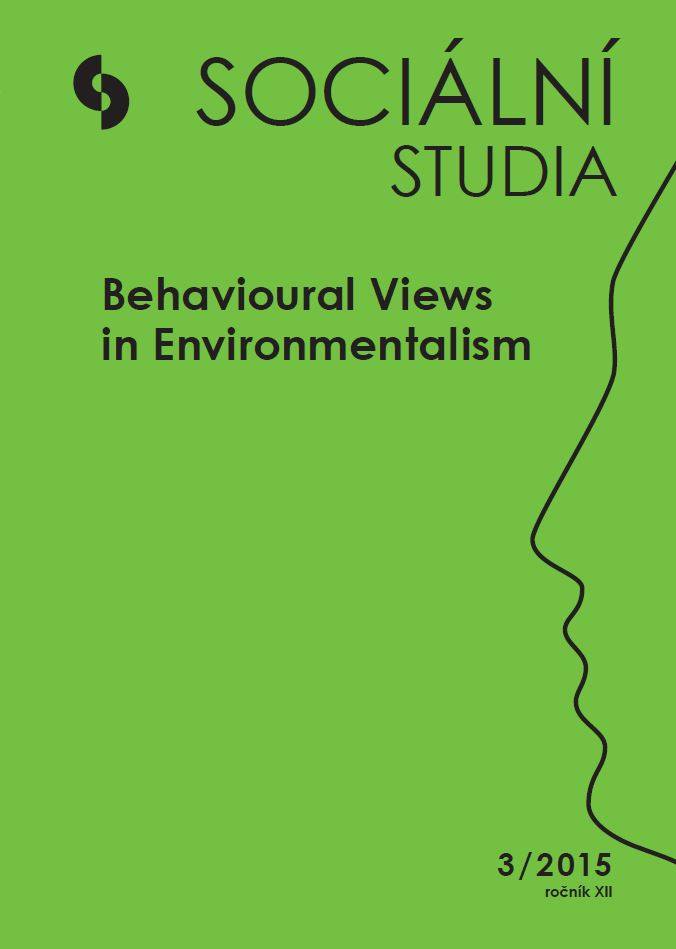Roč.12,č.3
Behavioural Views in Environmentalism
Studie
Issue Description
During the last decade, the position of the environmental movement both in the Czech Republic and globally can be described as growingly defensive. According to Binka (2013), we’ve witnessed various approaches and reactions to this situation which have one thing in common: they are rather useless when we aspire to change the situation. As a more appropriate strategy, Binka suggests developing a more critical and empirically based approach – strengthening the research-based environmentalism embedded in social sciences and also focusing specifically on the process of transmission and communication of environmental issues to a broader audience. Taking this suggestion to heart, this special issue provides nine exclusively empirical studies all researching in one way or another non-trivial relations between environmentally relevant human behaviour, stated preferences, environmental attitudes and more general environmental values and ethical positions. This issue thus brings a very diverse picture in terms of 1) different methodologies (not only qualitative or quantitative but often mixed approaches allowing for a more complex description and understanding of the studied phenomena); 2) a varying scope ranging from particular activities and related individual motivations to European-wide statistical pools covering representative samples of EU citizens; and 3) a diverse scale ranging from the specifically Czech context to comparisons with European and in one case the US milieu as well.
